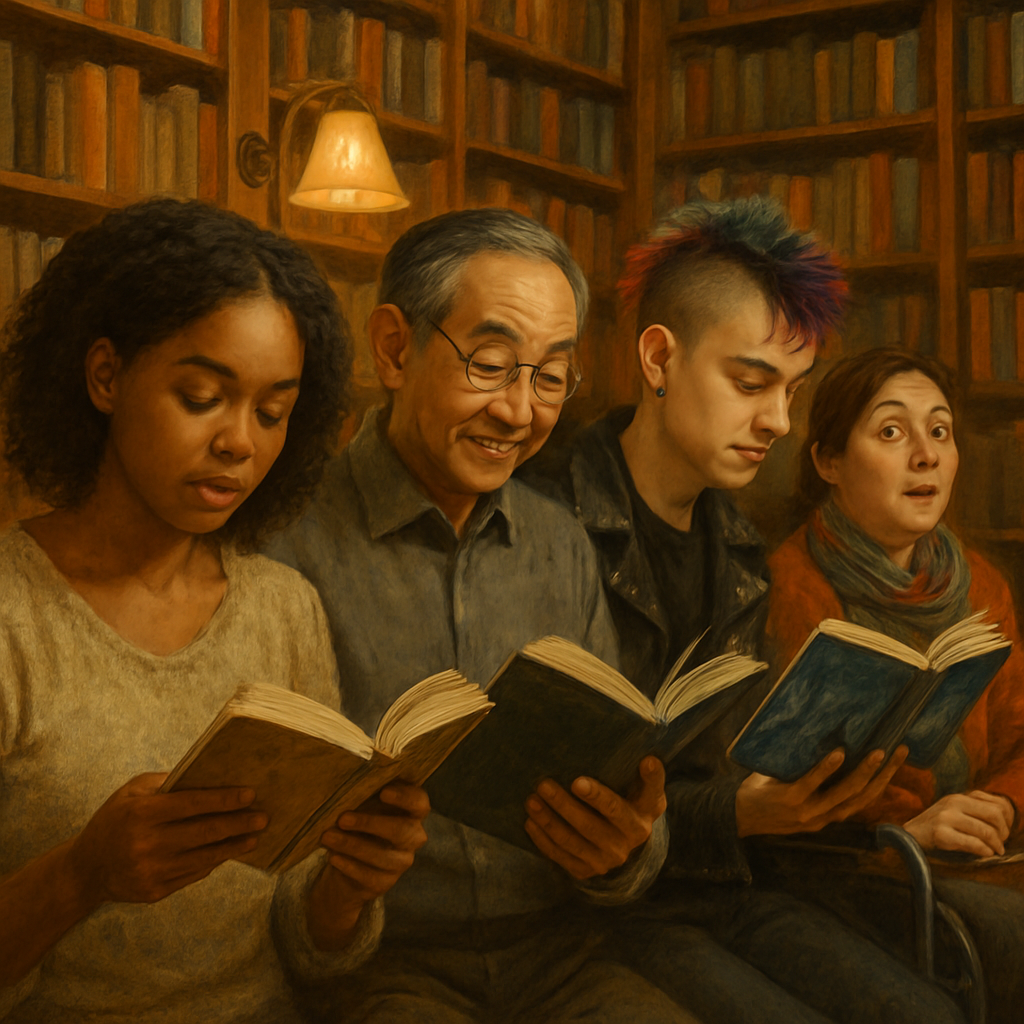Unconventional Literary Heroes Who Defy Stereotypes

Unconventional literary heroes those delightful oddballs that refuse to fit snugly into the typical mold of heroism. These characters, often unexpected and sometimes controversial, redefine what it means to be a hero. They don’t wear capes, and they certainly don’t fit the classic image of the chiseled, square-jawed protagonist. Instead, they bring something different to the table, challenging stereotypes and making us reflect on our own ideas of heroism.
Take a moment to think about it. Who comes to mind when you think of a hero? Maybe it’s the brave knight ready to slay a dragon or a caped crusader leaping from tall buildings. But what about the hobbit with more heart than height, or a scheming lawyer who somehow becomes a figure of justice? The beauty of literature lies in its capacity to shape and reshape our understanding of the world, and its characters are the perfect vessels for such an exploration.
The Unexpected Hero in the Hobbit
Let’s start with a tale from a galaxy far, far away no, not that one. I’m talking about Middle-earth, where a small and seemingly insignificant creature becomes the linchpin in an epic story. I’m, of course, referring to Bilbo Baggins from J.R.R. Tolkien’s “The Hobbit”. Bilbo, with his homely habits and love for second breakfasts, is a far cry from the conventional hero. Yet, it is his courage and wit that ultimately help him navigate the challenges of his journey.
Bilbo’s story is a testament to the idea that heroism doesn’t always roar; sometimes it’s the quiet voice at the end of the day that says, “I’ll try again tomorrow.” His journey from a reluctant adventurer to a courageous hero is a narrative arc that resonates with many of us who’ve ever had to step out of our comfort zones.
Yet, I remember reading “The Hobbit” for the first time and wondering why a hobbit was chosen to lead such a momentous quest. It seemed absurd, like choosing a Chihuahua to guard a bank. But maybe that’s the point sometimes the least likely heroes are the ones that can surprise us the most.
The Dark Side of Heroism in Antiheroes
Now, for a bit of a twist. What if our heroes aren’t entirely virtuous? Enter the antihero a character who possesses qualities opposite to the traditional hero archetype. Think of Walter White from “Breaking Bad”. He doesn’t neatly fit into the hero category, and yet audiences find themselves rooting for him, even as he plunges deeper into moral ambiguity.
Antiheroes like Walter challenge our perceptions. They question the binary of good and evil, showing us that life is messy and that people are often a blend of both. This is perhaps why these characters resonate so strongly in modern literature and media. They reflect the complexities of real life, where the lines between right and wrong are often blurred.
I remember a heated discussion with a friend over coffee about whether Walter White was truly a hero. My friend argued passionately that he was, while I wasn’t so sure. It got me thinking about how our definitions of heroism are so personal and subjective, shaped by our own experiences and values.
Heroes With a Different Kind of Strength
Another unconventional hero who defies stereotypes is Atticus Finch from Harper Lee’s “To Kill a Mockingbird”. Atticus isn’t a hero because of physical prowess or daring feats. Rather, he embodies moral courage and integrity, standing up for justice and equality in a deeply prejudiced society. His strength lies in his convictions, in doing what is right even when it is unpopular.
Atticus Finch remains one of literature’s most enduring characters because he fights not with fists but with words and principles. His story reminds us that heroism isn’t about the battles you win but the ones you choose to fight.
It’s funny how reading about Atticus made me reflect on my own experiences. I recalled a moment in high school when I stood up for a friend who was being bullied, not with fists or bravado, but with words. At that moment, I felt a glimmer of the courage that Atticus embodies.
The Reluctant Hero
Let’s not forget the reluctant heroes those who are thrust into the limelight against their will. Katniss Everdeen from Suzanne Collins’s “The Hunger Games” is a prime example. She doesn’t seek the spotlight or glory; she’s driven by love for her sister and a desire to survive. It’s this very reluctance that makes her relatable. Many of us have found ourselves in situations we didn’t choose, forced to rise to the occasion.
Katniss’s journey is a powerful reminder that heroism can be born out of necessity, and sometimes the greatest acts of bravery are the ones we never intended to undertake. I once found myself in a situation where I had to speak in front of a large audience something I never aspired to. It was terrifying, and yet it was one of the most rewarding experiences of my life. Katniss’s story echoes that sentiment, showing us that sometimes the hero’s journey is more about inner growth than outward success.
But isn’t it curious how some of the most memorable heroes are those who never wanted to be heroes in the first place? Maybe that’s because they remind us of ourselves the parts of us that are hesitant, unsure, and yet capable of greatness.
The Everyday Hero
Sometimes heroes don’t have grand adventures or save the world. Sometimes, they’re just trying to get through the day. Consider Arthur Dent from Douglas Adams’s “The Hitchhiker’s Guide to the Galaxy”. Arthur isn’t your typical hero. In fact, he’s utterly bewildered by the universe. Yet, his very ordinariness is what makes him endearing and, in a way, heroic. He’s just a regular guy trying to make sense of a senseless universe.
Arthur’s story is a delightful reminder that heroism doesn’t always mean saving the day; sometimes, it’s about surviving it. It’s about finding humor and resilience amidst chaos, a sentiment that resonates with anyone who’s ever felt like they’re just winging it through life.
I once had a day where everything went wrong missed the bus, spilled coffee on my shirt, and left my wallet at home. At the time, it felt like the universe was conspiring against me. But by the end of the day, I was laughing at the absurdity of it all, much like Arthur. It wasn’t heroic in the traditional sense, but it was a victory nonetheless.
Subverting Expectations
Literature is a playground for subverting expectations, and unconventional heroes are at the forefront of this narrative rebellion. They remind us that there are as many ways to be a hero as there are people in the world. These characters challenge us to look beyond the surface, to find heroism in unexpected places and people.
These stories are more than just entertainment they’re lessons in empathy and understanding. They teach us to see the world through different lenses, to appreciate the quirks and imperfections that make us human. And as we turn the pages of these tales, we find reflections of ourselves in these unconventional heroes, reminding us that we, too, are capable of greatness.
In the end, perhaps the most important takeaway is that heroism is as diverse as humanity itself. We are all heroes in our own stories, whether we’re saving the world or simply navigating the intricacies of everyday life. And maybe, just maybe, that’s the most heroic thing of all.


